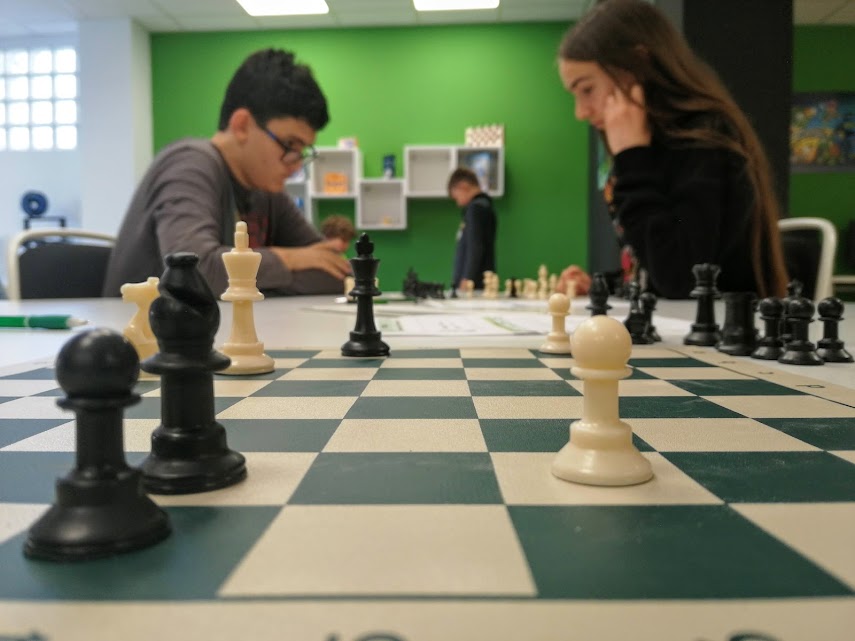As the holiday season approaches, and we anticipate spending many hours at home with family and friends, one of the best ways to have fun is by playing board games together. Board games not only provide entertainment but also serve as a valuable tool for developing cognitive skills, such as logical and mathematical thinking. These games present strategic challenges, force us to solve complex problems, and even demand mental calculations. This week, we suggest 10 board games that, besides being enjoyable, stimulate logical and mathematical thinking, helping keep your mind active.
1. Chess
Chess is an ancient strategy game that challenges the mind and promotes logical and mathematical thinking. Players must anticipate moves, plan strategies, and foresee the consequences of each move. The ability to calculate multiple moves ahead and evaluate possible opponent responses enhances analytical and problem-solving skills. Chess also stimulates mathematical skills, requiring the use of numerical concepts such as counting moves, evaluating patterns, and calculating positions. It’s a great option for two-player moments or even organizing a family tournament.
2. Catan
Catan is a strategic board game that demands good resource management and intelligent decision-making. Players must negotiate, trade, and build settlements while competing for control of lands. Probability calculation and strategic evaluation of actions are crucial elements for advancing in the game. Catan encourages long-term planning, strategic thinking, and the ability to adapt to changing situations.
3. Sudoku
Sudoku is a numerical puzzle that challenges logic and deductive reasoning. By completing a 9×9 grid with numbers 1 to 9 without repetition in rows, columns, and subgroups, it stimulates the ability to identify patterns, apply rules, and solve complex problems. It’s an individual game that promotes concentration, memory, and numerical understanding, contributing to the development of logical and mathematical thinking.
4. Ticket to Ride
Ticket to Ride is a game based on the strategic construction of railway routes. Players must plan and execute optimal routes while collecting train cards and connecting cities. Evaluating options, decision-making, and point calculation are fundamental aspects for success in this game. The need to manage resources and optimize strategies fosters logical thinking and basic mathematical skills, such as mental calculation and estimation.
5. Dominion
Dominion is a deck-building game where players compete to accumulate the most points. Strategy and resource optimization are essential to acquire cards and build an effective deck. Careful decision-making and evaluating available cards require analytical and strategic planning skills. Additionally, this game involves calculations to maximize moves and adapt to opponents’ strategies.
6. Qwirkle
Qwirkle is a game that challenges logic and pattern recognition through the placement of pieces with different shapes and colors to achieve the highest score. Players must identify and create logical sequences based on similar colors or shapes. This game promotes spatial reasoning, strategic planning, and the ability to identify and apply patterns—crucial skills in logical and mathematical thinking.
7. Rummikub
The classic Rummikub is a strategy game based on forming numerical groups and sequences with numbered tiles. Players must use logical reasoning to get rid of their tiles while planning and adapting their strategy throughout the game. This game encourages quick mental calculations, pattern identification, and the ability to make numerical combinations.
8. Pandemic
Pandemic is a cooperative game where players take on roles to stop global disease outbreaks. Collaboration, strategic planning, and resource management are vital for success. This game stimulates logical thinking by requiring the identification of patterns in the progression of diseases and decision-making to counteract them. It also involves calculations related to resource management and probabilities.
9. Carcassonne
Carcassonne is a tile-placement game where players build medieval landscapes. Strategy to expand territories and decision-making on where to place tiles are essential aspects of the game. It requires spatial skills to evaluate the board layout and foresee future moves. This game promotes strategic thinking, planning, and point calculation.
10. Risk
Finally, we can’t forget another classic board game. Risk is a global conquest game where players aim to dominate the world. Strategy, decision-making, and risk assessment are crucial for success. Players must calculate probabilities and assess the balance between attacking and defending to achieve victory. Risk stimulates strategic thinking and the ability to evaluate multiple scenarios, improving logical and mathematical thinking skills.
In summary, what all these board games have in common is that they are not only fun but also a valuable tool for the development of logical and mathematical thinking. They require strategic planning, the use of problem-solving skills, and the ability to perform quick mental calculations, among other cognitive abilities. Each game offers the opportunity to strengthen different cognitive skills, and they all allow us to enjoy moments of entertainment, whether individually, in pairs, or with friends and family.

